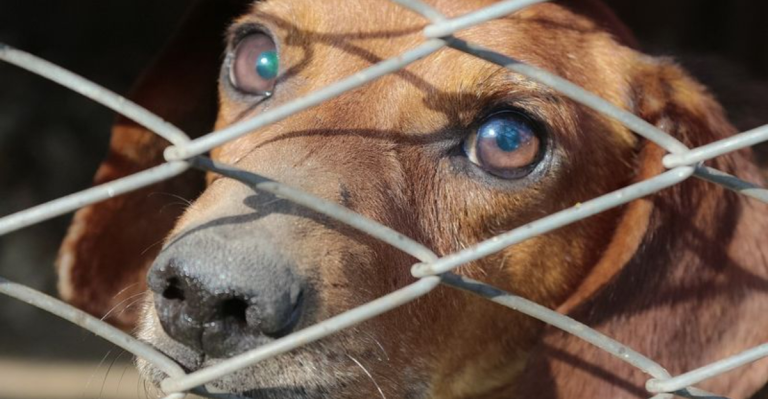Avoid These 12 Mistakes Everyone Makes With a New Puppy
Bringing home a new puppy is one of life’s most joyful moments—but it’s also one of the most overwhelming. Between the cuddles, accidents, chewed-up shoes, and late-night whimpers, it’s easy to feel like you’re making it all up as you go.
Even with the best intentions, new puppy owners often fall into the same traps—mistakes that can shape their pup’s behavior, health, and happiness for years to come.
But here’s the good news: most of these missteps are completely avoidable with the right knowledge and preparation. Whether this is your first dog or just your first in a while, knowing what not to do can be just as important as what to do.
Here are 12 mistakes every new puppy owner should avoid.
1. Skipping Socialization
Avoiding socialization can lead to a lifetime of anxiety for your pup. During those vital early weeks, puppies are incredibly impressionable and open to new experiences. Taking them to new places, introducing them to different people, and letting them meet other dogs helps build their confidence. It’s important to start this process between 8 to 16 weeks when their social skills are rapidly developing.
If ignored, this opportunity to nurture a well-adjusted dog may be lost forever. Socialization isn’t just about avoiding fears; it’s about creating a happy, friendly companion. Consider puppy socialization classes to guide you through the process and offer structured interactions with a variety of playmates.
2. Inconsistent House Training
House training requires consistency and patience, but it’s easy to slip into a pattern of inconsistency. Puppies thrive on routine, and without it, confusion reigns. Setting regular times for potty breaks can prevent accidents and build a reliable habit.
Owners who neglect a steady schedule often find themselves facing a longer training process. Avoid frustration by keeping a journal of your puppy’s habits and creating a tailored schedule.
Remember, patience is key. Celebrate small victories, and over time, your puppy will learn where and when to go. It’s not just about training; it’s about building trust and understanding between you and your furry friend.
3. Using Harsh Discipline
Harsh discipline only teaches puppies to fear rather than learn. Shouting or physical punishment can create anxiety, breaking the essential bond of trust needed for a happy relationship. Puppies need boundaries, but they must be set with kindness.
Positive reinforcement is a far more effective approach, rewarding good behavior with treats and praise. This encourages learning and strengthens your connection. Instead of punishing mistakes, guide your puppy towards the right behavior gently.
Remember, your puppy looks to you for guidance and love. By nurturing with compassion, you’ll raise a confident, well-behaved dog who respects you rather than fears you.
4. Neglecting Crate Training
Crate training isn’t a punishment; it’s a tool for providing security and comfort. Puppies instinctively seek small, den-like spaces, and a crate can be that refuge. Many new owners mistakenly avoid crates, thinking them cruel. However, with the right approach, a crate becomes a safe haven.
Introduce the crate gradually, associating it with positive experiences like treats and favorite toys. It helps prevent destructive behavior when you’re not around and supports house training by teaching bladder control.
Remember, a crate is a place of comfort, not confinement. Used wisely, it can be your puppy’s favorite spot, offering peace and security in their new world.
5. Not Puppy-Proofing Your Home
Puppies explore the world with boundless curiosity, often with their mouths. Neglecting to puppy-proof your home can lead to dangerous situations, as everyday objects become risks. Wires, cleaning supplies, and small objects are all potential hazards for your inquisitive friend.
Take the time to survey your home from a puppy’s perspective. Secure loose wires, store chemicals out of reach, and keep small, swallowable items off the floor.
Creating a safe environment isn’t just about prevention; it’s about fostering a space where your puppy can learn and play without harm. It’s a simple step that can save you from heartache and emergency vet visits.
6. Overfeeding or Underfeeding
Feeding your puppy the right amount is crucial for their growth and health. Overfeeding can lead to obesity, while underfeeding might cause nutritional deficiencies. Both extremes can affect their development, so finding the right balance is essential.
Consulting with a vet can help tailor a feeding schedule to your puppy’s specific needs. Monitoring their weight and adjusting portions as they grow will ensure they receive the necessary nutrients.
Remember, every puppy is different. What works for one may not suit another, so pay attention to their individual requirements. A well-fed puppy is a happy, energetic one, ready to explore the world with vigor.
7. Delaying Vet Visits and Vaccinations
Timely veterinary care lays the foundation for a lifetime of health, yet many owners delay these crucial first visits. Early vaccinations protect against serious diseases, setting your puppy up for a healthy future.
Regular check-ups allow vets to catch potential issues before they become major problems. Building a relationship with a vet also provides guidance on diet, behavior, and training.
Don’t wait for visible signs of illness. Preventive care is far more effective than reactive treatment. Your puppy depends on you to keep them safe, and regular vet visits are a vital part of that commitment.
8. Skipping Basic Training Early On
Assuming a puppy is too young to learn can delay essential training. Early lessons in obedience lay the groundwork for a well-mannered adult dog. Commands like “sit,” “stay,” and “come” are vital for safety and harmony in your home.
Starting training early prevents bad habits from taking root. Short, fun sessions keep your puppy engaged and eager to learn.
Incorporate training into everyday activities, using praise and rewards to reinforce positive behavior. Consistency and patience are key, and the results will be a dog that listens and responds happily to your guidance.
9. Ignoring Teething Needs
Teething is a challenging phase for puppies, and without appropriate outlets, your furniture may suffer. Providing suitable chew toys not only saves your belongings but aids in dental health.
Chewing helps relieve the discomfort of teething and strengthens developing jaws. Rotate toys regularly to maintain interest and ensure they’re sturdy enough to withstand vigorous gnawing.
By catering to their teething needs, you encourage healthy habits and save your favorite shoes from becoming casualties. A variety of textures keeps your puppy engaged, turning a potentially destructive phase into a harmless, even fun experience.
10. Forgetting Mental Stimulation
A bored puppy quickly becomes a mischief-maker. Mental stimulation is as vital as physical exercise, preventing behavioral issues by keeping their mind active. Toys like puzzle feeders challenge their problem-solving skills and provide enrichment.
Introduce variety in toys and activities to maintain interest. Interactive play strengthens your bond and offers an outlet for pent-up energy.
Think beyond physical games. Training sessions, new tricks, and even simple changes in routine can provide the mental stimulation puppies crave. A mentally engaged puppy is a happy one, less likely to develop undesirable habits.
11. Allowing Rough Play to Go Unchecked
Playtime can turn rough without guidance, leading to future problems. Allowing biting, jumping, or growling might seem cute, but it can escalate as your puppy grows. Setting boundaries in play teaches respect and control.
Redirect overzealous behavior with toys or commands, rewarding calm interactions. Supervise playtime with other dogs to ensure positive experiences.
Encourage gentle play and discourage rough housing by modeling the behavior you expect. Consistent training and clear rules make playtime fun and safe for everyone involved.
12. Expecting Too Much Too Soon
Puppies are bundles of energy and curiosity, but they need time to learn and grow. Expecting rapid progress can lead to frustration for both of you. Each puppy develops at their own pace, and patience is a vital part of the journey.
Celebrate small victories and remember that setbacks are part of learning. Consistency and understanding create a supportive environment where your puppy can thrive.
Training is a marathon, not a sprint. Enjoy the process, take the time to bond, and watch as your puppy blossoms into a well-behaved companion, all in their own time.


















